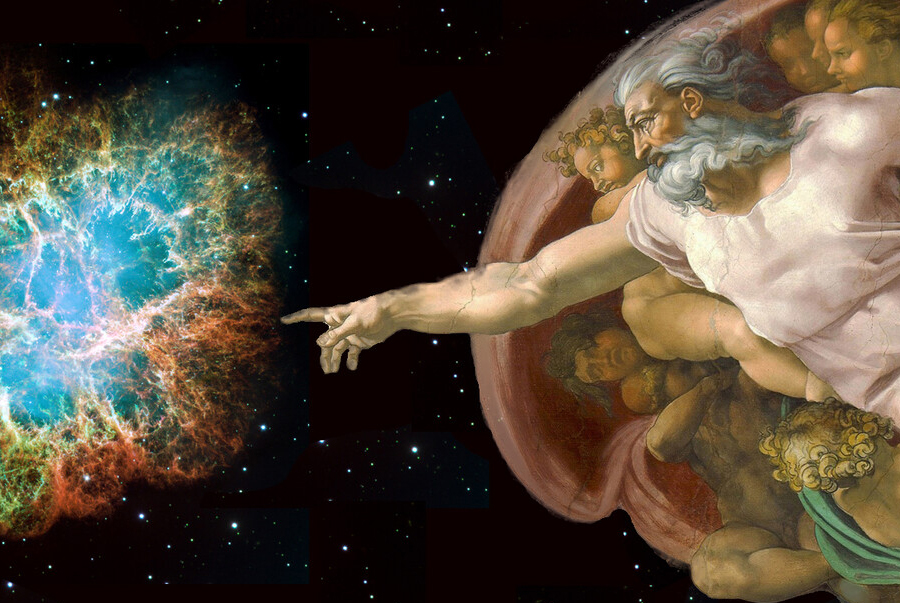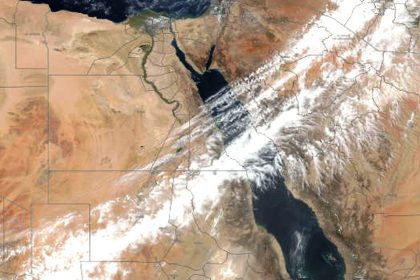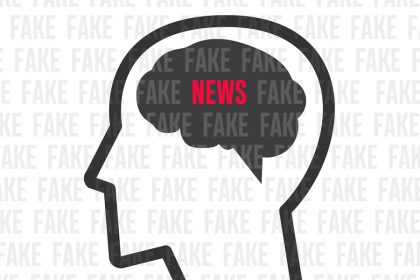Hi readers, by the grace of God Almighty and your prayers, I am recovering fast from Dengue and here I am back to blogging with second blog of the new series. Hope you will enjoy it.
In 1492, Christopher Columbus sailed across the Atlantic ocean and “discovered” Americas, but thought he was actually in India.
In 956, Al-Masudi drew a world map that showed a new continent across the Atlantic Ocean from Africa, later known as
The Americas
You can guess dear readers what is the difference between the two observations?
Many atheist-scientists believes that there is no limit on what science can answer whereas others (non-atheist) think that science has its limits. For example, science cannot tell us what is right and what is wrong. Also, science cannot tell us what is beautiful and what is ugly? Many such aspects of life are outside the domain of scientific enquiry. Explaining values in terms of neuroscience or evolutionary theory has nothing to say what is good or a bad value? That is purely a philosophical or religious question. Scientists can only explain ethics from these kind of approaches through introducing some unexamined concepts of what a good life is? but they cannot tell us from scientific basis, what should be done about the Ukraine today. Making efforts to tell or describe this would be categorized as a mistake.
The conclusion is that:
“religion is religion and science is science: all-inclusive of what Einstein said:
“Science without religion is lame, religion without science is blind.” So, let’s discuss what various religions says about science and vise-versa.
The interdisciplinary field of “science and religion” or “theology and science” provide answer to the above question through studying contemporary interactions between both the fields and their relationship in five religious traditions: Christianity, Islam, Hinduism, Buddhism, and Judaism.
We all know that most of the studies on this subject are focused on science and Christianity thinking that since science makes universal claims hence, its encounter with other religious traditions would be similar to its interaction with Christianity but, due to different creedal (authoritative formula of religious belief) doctrines, and distinct historical trajectories in science in other cultures/religion, lots of disanalogies / disagreements can be seen/found in the relationship between science and religion in different religious traditions. For example, Christianity, like Islam is Abrahamic monotheistic religion developed in the first century CE out of Judaism. Christians adhere to declared revelations described in a series of undisputed texts, which include the Old Testament, that comprised texts inherited from Judaism, and the New Testament, which contains the Gospels (which means narratives on the life, revelation and teachings of Jesus Christ., derived from the Anglo-Saxon term “god-spell” meaning thereby a “good news or god telling”) of Matthew, Mark, Luke, and John as well as events and teachings of the early “Christian churches revelations”: a prophetic book on the end times.
Relationship between Christianity and science has been revealed in two book’s metaphors (images) i.e. “Book of Nature”, with its orderly laws, and the “Book of Scripture”, with its historical narratives and accounts of miracles. Book of nature was more accessible because scripture requires literacy whereas both literates and illiterates alike could read the Book of Nature.
Maximus Confessor (Christian monk, theologian, and scholar), in his Ambigua (textual collection) compared scripture and natural law to the two clothes that envelop the Incarnated (personified or alive) Logos where Jesus’ humanity is revealed by nature, and his divinity by the scriptures.
During the Middle Ages, (ca. 1096–1141) historian began to realize that the book of nature was not easy to read because human’s sins have made human reasoning so much hazy that the book of nature has become difficult to read hence, scripture is needed as an aid as it contains teachings about the world.
Under such circumstance, what conclusions humans could legitimately draw about the reality can be anybody’s guess.
Christian authors in the field of science and religion kept debating upon how the two books interrelate. Concordism (attempt to make scientific discoveries especially on the origin of the world) is the attempt in this direction to interpret scripture in the light of modern science. It is a hermeneutical (theory and practice of interpretations involving an understanding that can be justified) approach to Bible’s interpretations, where one assumes or believes that the Bible foretells scientific theories such as the Big Bang or evolutionary theory. However, since many scientifically sounding statements in the Bible are false e.g.,
- the mustard seed is not the smallest seed,
- male reproductive seeds do not contain miniature persons,
- there is no sky or space, and
- the earth is neither flat nor immovable
thus, any plausible form of integrating the book of nature and scripture will require more hints/knowledge and sophistication. Theologians, therefore, proposed the addition of other sources of knowledge to scripture and science like of quadrilateral which is the dynamic interaction of scripture, experience, tradition, and reason.
Several Christian authors who have attempted to integrate science and religion tend to interpret findings from the sciences in a theological light, using established theological models such as evolutionary theory: a self-emptying God (the two words actually comprised Jesus Christ’s will to join/connect human nature to his actions taken as a divine person, to act through it and to only hide the glory of his divine nature in order to avoid the suffering that he might experience during the course. Doing this way, “he remained what he was, and he assumed what the was not”) who creates a distinct and autonomous world which results into internal self-coherence, and self-organizing universe.
The dominant epistemological (one of the major subfield of philosophy, like other subfields such as ethics, logic, and metaphysics.) outlook in Christian science and religion has been critical realism, a position that applies both to religion (theological realism) and to science (scientific realism). Critical realism aims to offer a middle way between immature realism (e.g., the world is as we perceive it) and instrumentalism.
(In philosophy of science, instrumentalism is a methodological view that ideas are useful instruments, and that the worth of an idea is based on how effective it is in explaining and predicting phenomena e.g., our perceptions and concepts are purely instrumental).
Instrumentalism encourages critical reflection on the world and the related perceptions hence an integrated approach should be broadly in line with Christian doctrine, especially the core beliefs such as the doctrine of creation, while at the same time it should be in line with empirical observations without undercutting scientific practices.
Several historians have argued that Christianity was instrumental to the development of Western science.
A widespread belief that played important role in the development of science in Christianity in the early modern period is that Adam, prior to the Fall, had superior senses, intellect, and understanding. As a result of the Fall, human senses became duller, our ability to make correct inferences was diminished, while nature itself became less intelligible. Postlapsarian humans (i.e., humans after the Fall) are no longer able to exclusively rely on their reasoning to understand nature. They must supplement their reasoning and senses with observation through specialized instruments, such as microscopes and telescopes. Interesting, isn’t it?
It is also believed that every man is liable to ruin himself if derived from corruption, (whether political or economic, environmental, or professional, ethics and morality, and habits, customs, traditions, and demography, born with it or made from its upbringing which is contrary with him) because it facilitates his slipping into all sorts of errors which is dangerous for the process of humane reasoning. The remedies to all these errors can only proceed from the real, the mechanical, and the experimental philosophy or the experiment-based science.
Another theological development that may have facilitated the rise of science was the condemnation of Paris which forbade teaching and reading natural philosophical views that were considered dissenting, such as Aristotle’s physical treatises. As a result, the condemnation opened up intellectual space to think beyond ancient Greek natural philosophy. For example, medieval philosophers held the Aristotelian belief that there could be no vacuum in nature, but once the idea of a vacuum became plausible, natural philosophers could experimented with air pressure and vacuum.
Some authors claims that Christianity was unique and instrumental in catalyzing the scientific revolution that was in fact a slow and gradual development from medieval Christian theology. Such ridged claims, however, fail to recognize the legitimate contributions of Islamic and Greek scholars to the development of modern science, and fail to do justice to the importance of technological innovations in map-making and star-charting in the emergence of modern science. In spite of these positive readings of the relationship between science and religion in Christianity, there are sources of enduring tension. For example, there is still vocal opposition to the theory of evolution among Christian fundamentalists. In the public sphere, the conflicting view between Christianity and science prevails, in sharp contradiction to the scholarly literature. This is due to an important outside influence of a vocal conservative Christian minority in the American public debate, which sidelines more moderate voices.
Can we get true picture of how Christianity defined and interrelate religion and science? is up to your intellect dear readers. I, however, guess that it could be hard for you to digest even this much hence, more next week especially how Islam differentiate between science and religion. Till then, take care
Bye.





